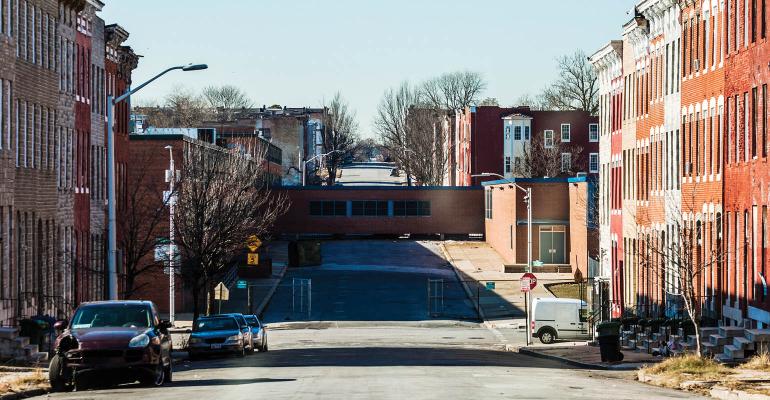Private equity investor Brandon Lacoff is seizing a hot opportunity in commercial real estate.
Lacoff serves as president and CEO of Belpointe REIT, a new non-traded REIT focused solely on projects in Opportunity Zones. Belpointe—sponsored by Belpointe LLC, a private equity investment firm and family office based in Greenwich, Conn.—boasts that it was the first Opportunity Zone-oriented REIT to register with the U.S. Securities and Exchange Commission (SEC). The registration took place in August 2018.
Lacoff, who’s also co-founder and CEO of Belpointe Asset Management LLC, says the REIT envisions going public in six to eight years with an equity offering of $3 billion. In February, the REIT filed paperwork with the SEC for the sale of $50 million in shares. The REIT is open to accredited and non-accredited individual and institutional investors, with a minimum buy-in of $10,000.
It has committed to nine multifamily and student housing projects in Opportunity Zones, Lacoff says.
Belpointe REIT differentiates itself from other real estate investment vehicles by not charging front-end loads, sale commissions or entrance fees; by imposing an annual management fee that’s 0.75 percent of NAV, which it touts as being lower than the typical 1.5 percent to 2.0 percent management fees that other real estate investment platforms impose; and by offering carried interest equaling 5.0 percent of NAV.
Additionally, Lacoff notes that the Belpointe real estate team includes several former executives from multifamily REIT AvalonBay Communities Inc.
According to Lacoff, the REIT marries two benefits of the federal Tax Cuts and Jobs Act of 2017: the Opportunity Zone program, which extends tax breaks to promote investment in economically challenged census tracts, and section 199A[JE1] , which provides a 20 percent tax deduction for qualified REIT dividends.
In a Q&A with NREI, Lacoff discusses the appeal and longevity of Opportunity Zone investments, and shares the advice he’d give to potential Opportunity Zone investors.
This Q&A has been edited for length, style and clarity.
NREI: What drew you to Opportunity Zones?
Brandon Lacoff: We’ve always built in second tier locations because we felt that they had the most upside. For example, we have over 1,000 units that we’re building in multiple phases in Norwalk, Conn., and Norwalk qualifies for Opportunity Zones. If you look at our last funds, 91 percent of our projects were actually in Opportunity Zones. We didn’t get the benefit of Opportunity Zones because we bought the projects and built them and stabilized them before Opportunity Zones were even a thing. This REIT is no different from our business model; it just takes our business model and allows us to grow and make it bigger, and also give our shareholders additional tax benefits.
NREI: Through the REIT, what kinds of projects will you take on?
Brandon Lacoff: Opportunity Zone investments require either heavy renovation or new ground-up construction. The majority of projects in the history of our company have been ground-up construction. It’s difficult to find good renovations that make a lot of sense, and it’s also hard to find renovations that meet the Opportunity Zone requirements, where you have to double the basis when you renovate the building.
The vast majority of our projects will be new construction because of the Opportunity Zone rules and because of the lack of good renovation projects. Eighty-five to 90 percent of our investments will be in what we know best—residential rental. That could be student housing, multifamily, workforce housing or seniors housing. Most, if not all, of our projects will have a local sponsor that we’ll bring in after we sign the deal on a property or if a partner brings us a deal; they’ll have somewhere between 10 and 20 percent of the equity in a deal, and then we’ll put in the lion’s share of the equity. The size of a project will be $25 million or more.
NREI: How long of a run do you think Opportunity Zones will enjoy?
Brandon Lacoff: I think you’re going to see a lot of Opportunity Zone investments over the next two-and-a-half years. I think Opportunity Zone investments will still have a run even five years out. For the next two-and-a-half years, they’ll be very popular, and it’ll start dwindling after that. (The window for capital gains tax deferrals associated with Opportunity Zone investments closes in 2026.) I think the Opportunity Zone program will be successful; I think Congress, both Democrats and Republicans, will agree that the program is successful and will want to expand it.
NREI: What advice would you give investors who are considering Opportunity Zone prospects?
Brandon Lacoff: My biggest piece of advice is to do the same due diligence that they would do when they’re finding a doctor if they need surgery. You want to find the best doctor to do that surgery. It’s the same thing in real estate. A lot of fund managers do not have the proper development and construction expertise.
That’s one of my biggest concerns—making sure you have the right manager to execute the business plan. We’ve seen many of them lose projects—forget Opportunity Zones—because they didn’t know how to execute on the development and construction side. I think there’s going to be a lot of risk for Opportunity Zone investors on the execution of the business plan, which is the development and construction of whatever project they’re investing in.

